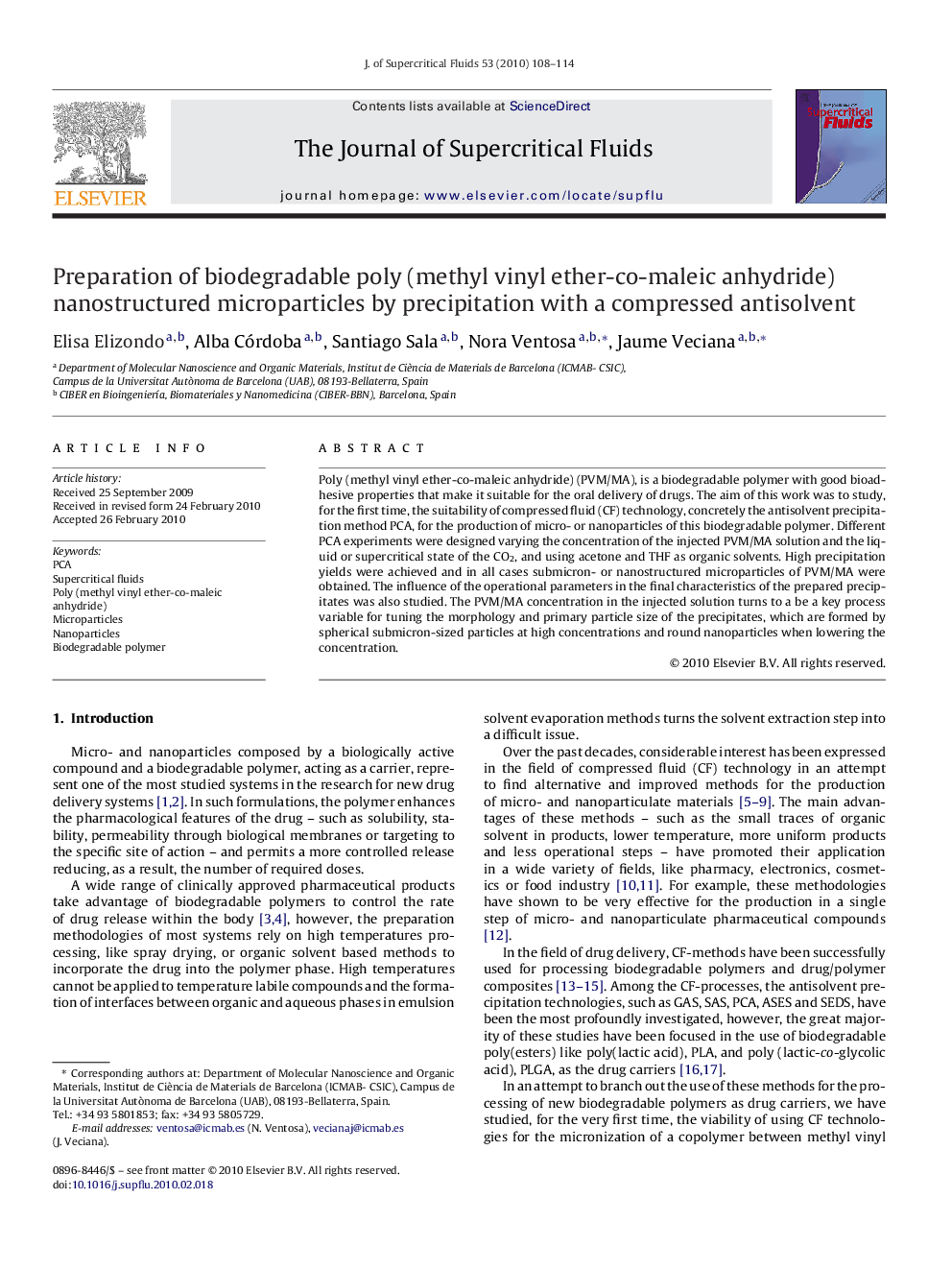| کد مقاله | کد نشریه | سال انتشار | مقاله انگلیسی | نسخه تمام متن |
|---|---|---|---|---|
| 231405 | 1427434 | 2010 | 7 صفحه PDF | دانلود رایگان |

Poly (methyl vinyl ether-co-maleic anhydride) (PVM/MA), is a biodegradable polymer with good bioadhesive properties that make it suitable for the oral delivery of drugs. The aim of this work was to study, for the first time, the suitability of compressed fluid (CF) technology, concretely the antisolvent precipitation method PCA, for the production of micro- or nanoparticles of this biodegradable polymer. Different PCA experiments were designed varying the concentration of the injected PVM/MA solution and the liquid or supercritical state of the CO2, and using acetone and THF as organic solvents. High precipitation yields were achieved and in all cases submicron- or nanostructured microparticles of PVM/MA were obtained. The influence of the operational parameters in the final characteristics of the prepared precipitates was also studied. The PVM/MA concentration in the injected solution turns to a be a key process variable for tuning the morphology and primary particle size of the precipitates, which are formed by spherical submicron-sized particles at high concentrations and round nanoparticles when lowering the concentration.
Figure optionsDownload as PowerPoint slide
Journal: The Journal of Supercritical Fluids - Volume 53, Issues 1–3, June 2010, Pages 108–114